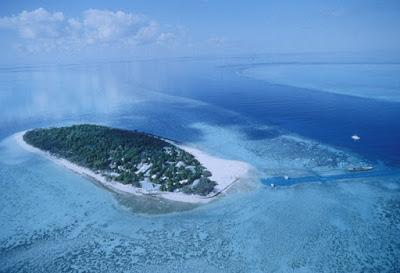
Heron Island on Australia's Great Barrier Reef rises above the surrounding reef.
The Great Barrier Reef, stretching for 1250 miles along Australia’s northwestern coast, is one of the world’s most remarkable places. I have visited the Great Barrier Reef twice, first in 1983 when I went with my family to Heron Island (see my blog post for September 23, 2013) and again in 2002 when I stayed at an eco-resort in the Whitsunday Passage. Both times I had a chance to experience the wealth of wildlife that lives on and around the reef, both at low tide on the reef flat and by snorkeling in deep water. Not surprisingly, we took hundreds of photos! Here are a few from our visit to Heron Island when we went out to explore the reef at low tide.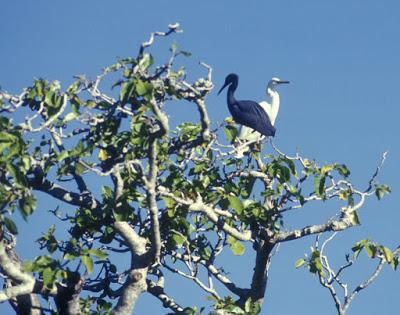
Herons
Heron Island is one of the few islands on the outer reef with trees. The trees and plants on Heron Island provide a rare refuge for ocean going birds, including the herons after which the island is named. Many nest in the tall pandanus trees. Small crabs, fish, and other sea life are plentiful on the reef and provide food for growing chicks.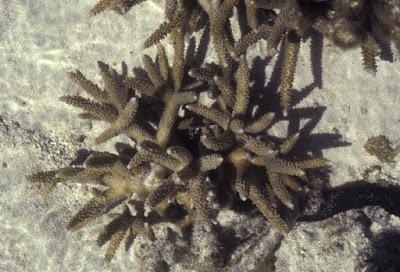
Staghorn Coral
Despite its plant-like form, coral is actually clusters of tiny animals that live inside hard calcium skeletons. Staghorn coral gets its name from its antler-like projections.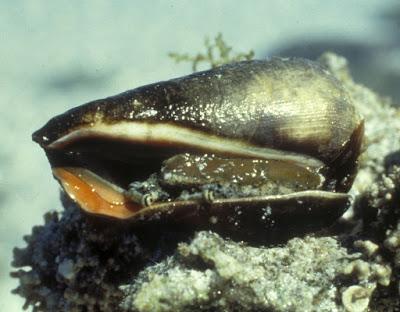
Cone Shell
Beware of cone shells! A sting from some species of cone shell can kill a person.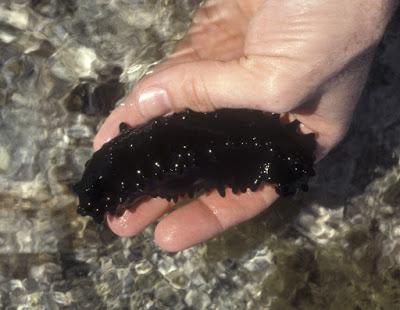
Sea Cucumber
Sea cucumbers are also known as beche-de-mer. Hundreds of years ago, Chinese sailors came to the Great Barrier Reef to harvest sea cucumbers, still considered a delicacy. Sea cucumbers are in the scientific group Echinodermata and are related to starfish, sea urchins, sand dollars, as well as the sea lilies or "stone lilies"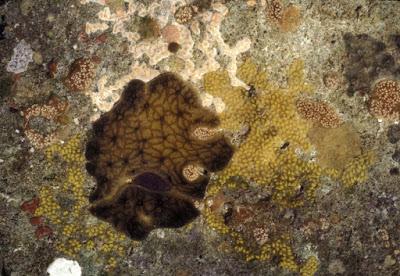
Underside of a reef rock
Like a colorful abstract painting, tiny sponges and algae grow on the underside of a reef rock. Reef rock forms from compressed calcium carbonate.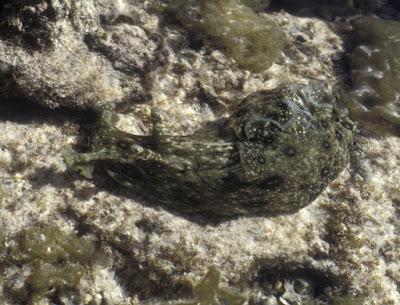
Sea Hare (Aplesia)
Inching along like a giant slug, a sea hare is so well camouflaged that it can hardly be seen.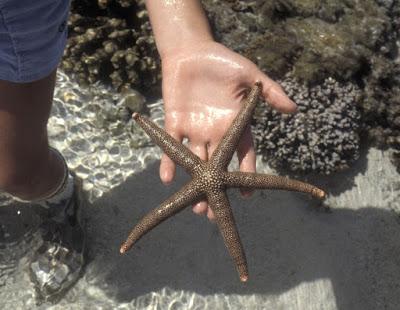
Sea Star
A variety of sea stars live on the Great Barrier Reef. Their arms break off easily, helping them to escape predators. Gradually a new arm grows and replaces the old one.The Great Barrier Reef is one Earth's richest environments. These are just a few of the millions of amazing creatures that live there.
